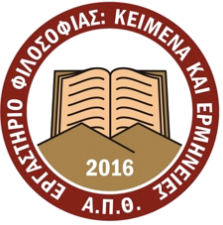Is Xenophon a philosophos? Reflections on the refusal of the Moderns to recognize him as a philosopher
Louis-André Dorion (University of Montreal)
Abstract
Xenophon is undoubtedly a case worthy of study when it comes to the criteria by which we consider whether or not an author deserves to be called a philosopher. In antiquity, Xenophon was unanimously regarded as a Socratic and a philosopher, but historians of philosophy in the early nineteenth century questioned whether he was really a Socratic and a philosopher. In the last thirty years or so, there has been a complete reversal of the negative judgement that historians of philosophy made of him for almost two centuries. I propose to set out the reasons why philosophers in the nineteenth and twentieth centuries generally refused to regard Xenophon as one of their own, and the reasons that have recently justified his return to the ranks of philosophers. Finally, I will ask whether Xenophon saw himself as a philosopher: as the author of several treatises that belong to different literary genres, it is not immediately obvious that he saw himself more as a philosopher than as a historian.
Louis-André Dorion is Director of the Philosophy department and full Professor at the University of Montreal. He has published historical and biographical works, political, economic, and technical treatises, and philosophical dialogues as well. His research interests include among others: Socratic Teaching & Learning, Plato, Xenophon, Aristotle’s Metaphysics, Ancient Historiography and Montaigne. He has translated Plato’s Laches, Euthyphro, Charmides, Lysis and Xenophon’s Memorabilia.

